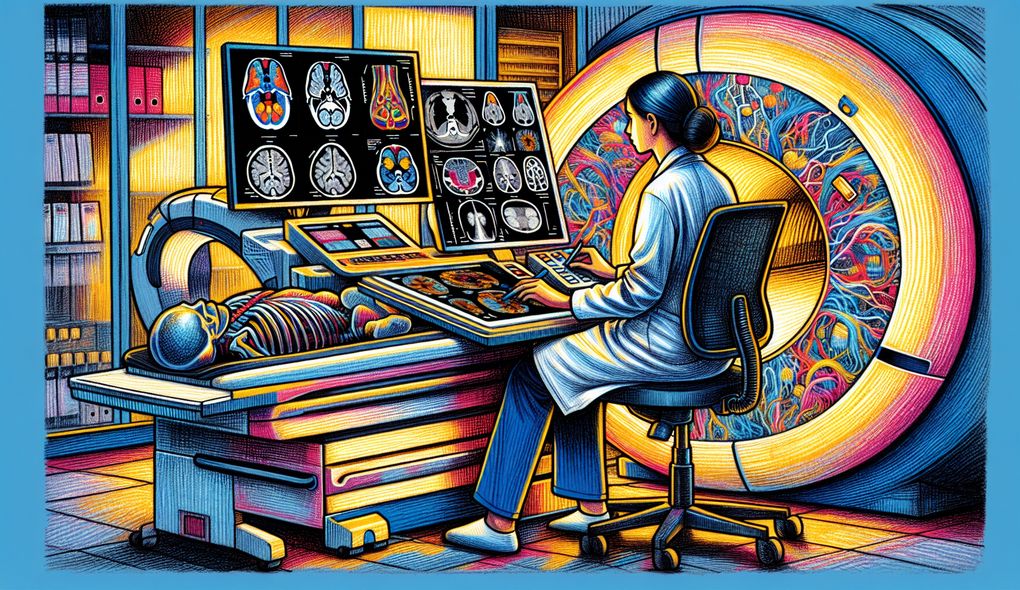Can you explain the importance of quality control in radiology imaging procedures?
JUNIOR LEVEL

Sample answer to the question:
Quality control is essential in radiology imaging procedures because it ensures accurate and reliable results for patients. By implementing strict quality control measures, we can minimize the risk of errors and improve the overall quality of patient care. For example, by regularly calibrating imaging equipment and performing quality checks, we can ensure that the images produced are of high resolution and clarity. This allows radiologists to make accurate diagnoses and effectively treat diseases and injuries. Additionally, quality control helps identify and address any issues or discrepancies in the imaging process, such as artifacts or incorrect positioning, which could impact the accuracy of the results. By maintaining consistent quality control practices, we can uphold the highest standards in radiology and provide the best possible care to our patients.
Here is a more solid answer:
Quality control plays a crucial role in radiology imaging procedures as it directly impacts the accuracy and reliability of diagnostic results. By adhering to strict quality control measures, we can ensure that the imaging equipment is properly calibrated and maintained, resulting in high-resolution images with accurate anatomical details. This enables radiologists to make precise diagnoses and develop effective treatment plans for patients. Additionally, quality control helps identify any technical issues or artifacts that may affect the interpretation of images. For example, regular quality checks can detect equipment malfunctions or positioning errors, allowing for prompt troubleshooting and re-imaging if necessary. By consistently implementing quality control protocols, we can minimize errors, improve the efficiency of patient care, and enhance overall clinical outcomes.
Why is this a more solid answer?
The solid answer expands on the basic answer by emphasizing the direct impact of quality control on the accuracy and reliability of diagnostic results. It also provides specific examples of how quality control measures can detect technical issues and improve the efficiency of patient care. However, it could be further improved by including more details about the candidate's experience and expertise in quality control procedures.
An example of a exceptional answer:
Quality control is of utmost importance in radiology imaging procedures as it is directly linked to patient safety, accurate diagnoses, and effective treatment outcomes. Through rigorous quality control measures, we ensure that imaging equipment is properly calibrated, thus producing high-quality images with optimal resolution and contrast. This enables radiologists to detect even the most subtle abnormalities and make precise diagnoses, leading to timely interventions and improved patient outcomes. Moreover, quality control helps identify any artifacts or technical errors that could impact the accuracy of interpretations. By promptly addressing these issues, we prevent misdiagnoses and unnecessary procedures, reducing patient risk and unnecessary healthcare costs. Additionally, continuous quality improvement initiatives enable us to stay abreast of advancements in imaging technology, ensuring we provide the most advanced and reliable diagnostic services. By prioritizing quality control, we elevate the standard of care we deliver to our patients, promoting their well-being and instilling confidence in our services.
Why is this an exceptional answer?
The exceptional answer encompasses all the key points mentioned in the solid answer while providing a more in-depth explanation of the impact of quality control on patient safety, accurate diagnoses, and treatment outcomes. It emphasizes the role of rigorous quality control measures in detecting subtle abnormalities, preventing misdiagnoses, and reducing unnecessary procedures. Furthermore, it highlights the importance of continuous quality improvement to stay updated with advancements in imaging technology. The exceptional answer demonstrates a comprehensive understanding of the subject matter and effectively communicates the candidate's expertise in quality control.
How to prepare for this question:
- Familiarize yourself with the principles and best practices of quality control in radiology imaging procedures.
- Stay updated with the latest advancements in imaging technology and their implications on quality control.
- Reflect on your experiences in implementing quality control measures and the impact they had on patient care.
- Be prepared to provide specific examples of how you have identified and addressed technical issues or artifacts in imaging procedures.
- Highlight any continuous education or training you have pursued to enhance your knowledge and skills in quality control.
What are interviewers evaluating with this question?
- Understanding of the importance of quality control
- Knowledge of radiology imaging procedures
- Ability to articulate the impact of quality control on patient care

